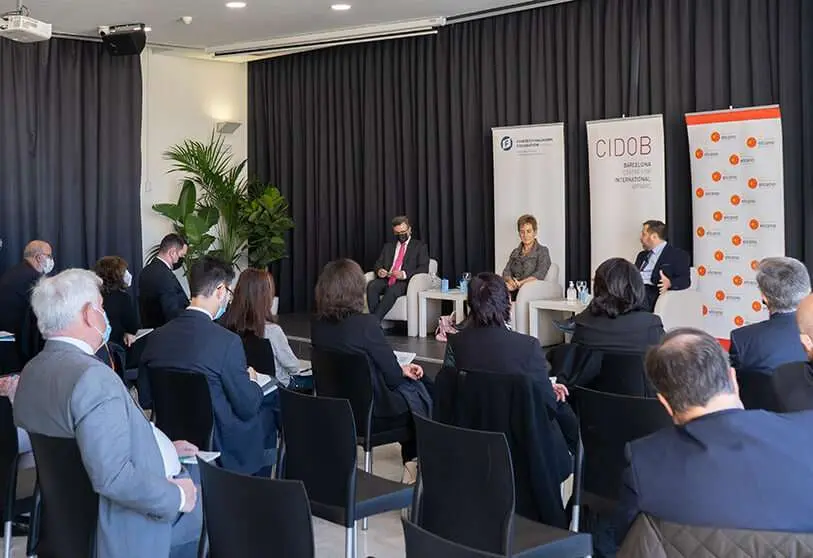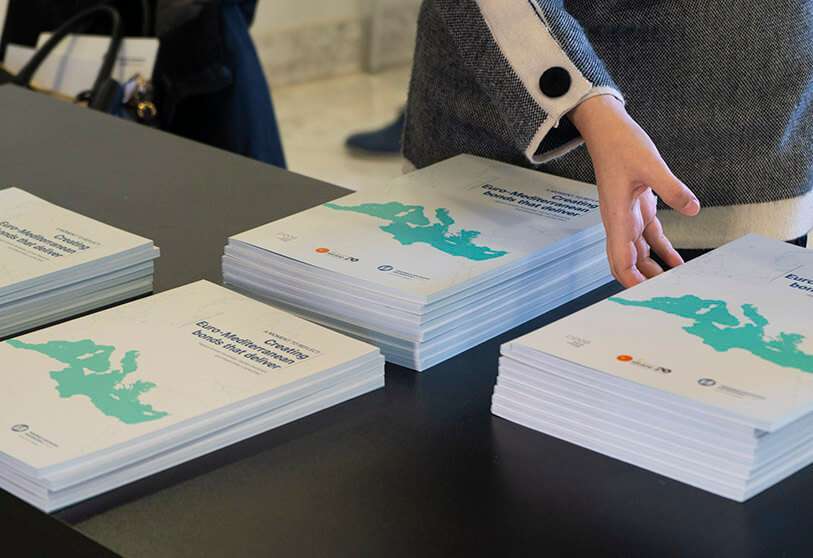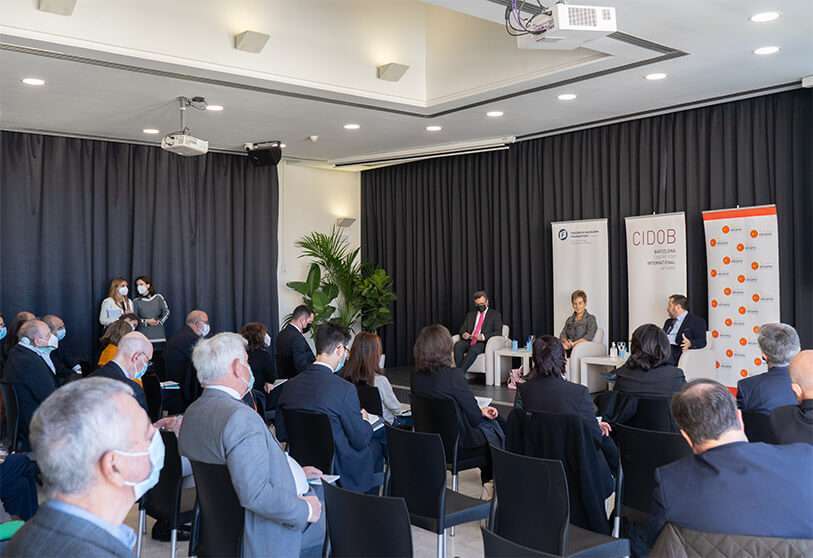Europa y el Mediterráneo: ¿qué futuro en común?

The situation in the Mediterranean region has deteriorated over the past 25 years. This is the assessment made in the report 'A moment to reflect: Creating Euro-Mediterranean bonds that deliver' on the current state of the Euro-Mediterranean region, which offers three possible ways out from a prospective analysis, signed by the Elcano Royal Institute, CIDOB and the Friedrich Naumann Foundation. The scenario is much more unstable, unequal and tense than it was in 1995, when the 12 countries that signed the Barcelona Process agreements met in Spain to agree on and set goals for 2010. Those goals, which sought to form a free trade area in the Mediterranean basin, have not been met in any respect. A moment to reflect: Creating Euro-Mediterranean bonds that deliver', with this in mind, offers tools and paths to achieve what it sees as the best possible Mediterranean for all its neighbours, thanks to the contributions of researchers and civil society.

"Sitting the 12 protagonists of the agreements around a table today, as was done in Barcelona in 1995, would be a much more complicated task," said Eduard Soler i Lecha, senior analyst at the CIDOB (Barcelona Center for International Affairs), during the presentation of the report 'A moment to reflect: Creating Euro-Mediterranean bonds that deliver' at the Círculo de Bellas Artes in Madrid. A report coordinated by Haizam Amirah Fernández, Carmen Deschamps and Soler himself, which provides a perspective, not only on the current situation of relations between Europe and the Mediterranean, but also on the possible scenarios that can be glimpsed on the horizon.
These scenarios, of which there are three, are defined as "Bonds that deliver", the most desirable outcome. "Looser bonds", the peaceful distancing of the shores and the entry into the game of new players such as China or the monarchies of the Arabian Peninsula. And finally, 'Too tight bonds', a relationship that is too tightly bound by national interests and threatened by a growing extreme right and stagnant conflicts, which is presented as the consequence of current trends, in force since the disillusionment of 2011 in the Arab countries.

The presentation event, which was attended by the Secretary of State for Foreign and Global Affairs, Ángeles Moreno Bau, the Director of the Elcano Royal Institute, Charles Powell, the Director of the Madrid office of the Friedrich Naumann Foundation, David Henneberger, and the Director of the CIDOB, Pol Morillas, highlighted the most important points of the publication through a round table discussion led by the journalist Ángeles Espinosa, together with the two main researchers of the work, Amirah Fernández and Eduard Soler.
In the words of the report's editors, the Euro-Mediterranean region is one of Europe's greatest challenges, and one that deserves more attention from government institutions. Recently, these interests have also been joined by new countries outside the sea basin, such as Germany, through its political class or civil society, as David Henneberger, director of the Friedrich Naumann Foundation's office in Madrid, commented, "It is a success that a German foundation collaborates with two Spanish institutions and is interested in the same issues. We have common concerns and we should have more".

His words were echoed by Moreno Bau, who recalled Spain's special commitment to the Mediterranean region through its international cooperation programmes in the region.
It is an interest that the authors of the report have supported, not only for Spain, but in a common framework of alliances. The creation of a 'neighbourhood' that enriches its 'inhabitants' in a sustainable and durable way. It should be remembered, as was pointed out at the event, that Spain's imports to Morocco represent a similar economic volume to Spain's imports to China.
The promotion of this 'neighbourhood' should, following the positive 'Bonds that deliver' scenario, move countries away from the paradigm in which the north of the Mediterranean looks at the south through the prism of security, with terrorism and immigration at the forefront of these concerns, while the south of the Mediterranean looks at the north through the glasses of resentment, fuelled by the significant economic gap that separates the two shores and that especially affects the youth of an area that has seen its population grow by 35 per cent over the last decade.

"There is still time to achieve a better Mediterranean," Soler stressed in his speech, "But time is running out. We want to reach the scenario of the 'Founding Fathers of 1995'. To those objectives, which are still valid today, even if we cannot use the same tools as at that time, since they have proved to be useless". "We cannot think of ourselves as being protected from what happens 500 km from Barcelona, 200 km from Almería, or just a few steps from Ceuta and Melilla," concluded the researcher.
The achievement of these goals, according to CIDOB and RIE researchers, requires a change of perspective from European policy, in order to, in the words of Amirah Fernández, "infect good governance and democratic values" in its neighbours, as opposed to "the infection of autocracy and illiberalism". The report argues that a less traditional geopolitical approach will be needed in the region, leading to three successive steps leading to: "(1) reconciliation between formerly warring neighbours, (2) normalisation of relations between all countries involved, and (3) mutual recognition of borders. The EU has the potential to foster these dynamics in its southern neighbourhood".
These points cited in the report have reportedly never been seriously proposed by European foreign policy and its interlocutors in Africa, according to the researchers, presumably due to a lack of serious political will to achieve them.
A moment to reflect: Creating Euro-Mediterranean bonds that deliver' also features a large number of members of civil society who have contributed their views on building a common Mediterranean. Among them are entrepreneurs such as Adnane Addioui, members of the associative world such as Sana Afouiaz, artists and activists, members of the academic and educational community, journalists, writers and scientists from all shores of the Mediterranean, who offer their impressions through interviews conducted by CIDOB and RIE researchers, which can be found in the publication, in order to better understand and work for a united Mediterranean.








